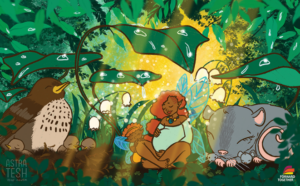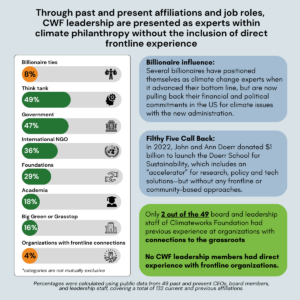As social impact and nonprofit consultants, we get to work in the gap – where we’re able to leverage social change from inside and outside of nonprofit and philanthropic institutions.
But this positionality presents its challenges:
- The tension between being honest with our clients and the possibility of being fired if they don’t like what we have to say.
- Holding our own organization and colleagues accountable as we hold others accountable for justice and equity.
- Navigating between cultures while looking for common ground.
The conflicts emerging from these tensions are growth opportunities for us – an organization of women who come from different ethnicities and experiences.
They call for serious humility, a commitment to learning from mistakes and building in reflective time to recognize our blind spots.
We must embrace these tensions and move beyond lip service on issues of power and privilege existing in “the gap.”
What we have to say may seem straightforward, but authentic relationships in how we relate to each other as individuals, funders and staff is foundational to more equitable consulting partnerships.
Our team does this a few ways:
1. We schedule regular opportunities for feedback. It seems simple, but building trust authentically is easier said than done.
In our first conversation with a recent funder, we explicitly created a working relationship in which we could share honest 2-way feedback.
To make space for this, we scheduled quarterly check-ins dedicated to re-examine our relationships, considering whether we felt comfortable giving and receiving honest feedback, and acknowledging the balance of power.
In future relationships, we seek more opportunities for verbal, written and anonymous feedback.
2. We allow our partners to come to their own conclusions. We love self-assessments, data interpretation sessions and participatory processes.
These interactive and user-centered methods allow us to ask difficult questions and bring in participant voices to illustrate findings.
In a recent workshop with fundraisers, participants reflected on the culture of learning at their respective organizations.
They identified a variety of factors that can limit a learning culture, like lack of staff capacity, knowledge gaps and disinterest from upper management.
The biggest barrier identified was the challenge of pointing out these issues to colleagues without putting them on the defensive.
In response, we shared a self-assessment tool aimed at surfacing collaborative opportunities to increase the culture of learning and improvement together with colleagues.
3. We strive to walk the talk. Our team recently sent an email to potential partners and ended up having a longer discussion on how identity – gender in particular – plays a strong role in our email language as women.
Based on this conversation we started editing our emails to remove undermining words like “just” or “I think,” leaning into the pride we feel in our work.
Identity and bias also play a role in how our team approaches research. On a past project looking to understand quality of life for older adults, we focused on adults older than 60.
We learned that Black people in the U.S. county we worked in have an average life expectancy of 76.5 years, 10 years fewer than the predominantly white parts of the county.
This was a critical finding that meant a key population, younger African American residents who don’t neatly fit into many funders’ “older adult” boxes, had been overlooked in understanding quality of life.
Based on these findings, we worked with our foundation partner to ensure future studies of older adults represent younger county residents, and we explored earlier interventions that would help older adults in their 50s who are at risk.
4. We focus on implementation (the less sexy word for capacity building). If we’re committed to the missions of organizations, we need to ensure that our recommendations are useful and feasible for partners to carry out.
For example, we prepare reports and dashboards using software that is free or easily accessible so our partners aren’t beholden to us for longer than is genuinely helpful.
We’re developing a list of tools to share with nonprofits that are inexpensive or free. Three free resources we use as a team and with our partners are Quire (project management), Clockify (time tracking) and Tableau Public (data visualization).
One of our roles as consultants trying to bridge the gap is to hold funders accountable to the power and privilege of their role while helping ourselves and our nonprofit clients stand in the real power that we possess as influencers and keepers of deep content knowledge.
Perhaps our biggest form of power is our interpersonal power (i.e. our network) and our ability to ask difficult questions that build critical consciousness with our partners and our team.
Emergence Collective is a capacity building consultancy with a flat, network-based organizational structure. Lauren, Leah and Mary are 3 of the co-founders of Emergence Collective. Follow @emergencecol on Twitter.
































































































































































































































































































































































































































